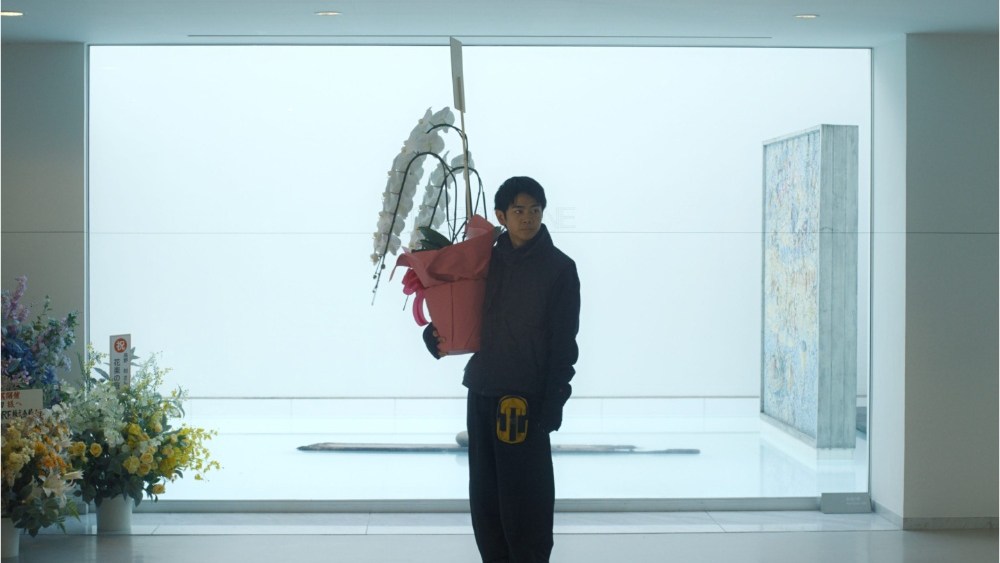Time heals no wounds in “Brand New Landscape,” an outwardly gentle but subtly cutting domestic drama that begins as a snapshot of a family adrift, fast-forwards to one of a family severed, and proceeds to reflect stoically on the difficulty of familial repair. Tonally unassuming but intellectually ambitious, this promising debut feature from 26-year-old Japanese writer-director Yuiga Danzuka maps these fractured relationships against the fragmented, fast-changing urban geography of Tokyo — as befits the perspective of its emotionally detached architect patriarch — in pursuit of a broader statement about evolving, dispersing family structures in the modern world.
In the wider view, “Brand New Landscape” is perhaps less rewarding than it is up close: Its extended architectural metaphors are thoughtful and ornate but not always legible, and the film has less to say about society at large than it does about three carefully drawn and specifically damaged individuals. As a contained character piece, however, it’s intelligent and affecting, avoiding pat emotional resolutions as it unpicks relationships that can’t be readily mended. After premiering in Directors’ Fortnight at Cannes ahead of an appearance in Shanghai’s Asian New Talent competition, the film is assured of further travel on the festival circuit, and should attract interest from specialist distributors and streaming platforms.
It opens on a wide shot that will be replicated toward the film’s end — ten years on and minus one key figure — as a family sits for a meal at an uninviting mall food court. There’s a palpable chill at the table between middle-aged Hajimi (Kenichi Endo), a renowned architect, and his wife Yumiko (Haruka Igawa); their children, restless pre-teen Ren (Arao Rintaro) and his near-adult sister Emi (Ishida Riko), seem likewise checked out of this supposed bonding time. They’re en route to their seaside holiday home, where the mood doesn’t lift: The parents discuss separation, the children whisper to each other that mom is in another of her “low-energy” phases, while unhappy household silences are chiefly broken by Hajimi’s never-muted work phone.
A decade later and everything is different, save for that general air of malaise. We gather what has happened in the interim from the adult lives of Ren (now played by Kodai Kurosaki), now a delivery driver for a high-end florist, and Emi (Mai Kiryu), who is readying herself for marriage to her long-term boyfriend. The siblings aren’t demonstrably close, but maintain a bond rooted in grief and trauma. It emerges that their mother died shortly after the events of the film’s prologue, after which Hajimi eventually abandoned them to open a practice in Singapore, burying a surfeit of unresolved issues under a lofty array of professional accomplishments. Having recently returned to Tokyo, he hasn’t pursued a reunion with his estranged children, though a chance encounter with Ren forces his hand. While Emi is reluctant, her brother hopes for some manner of closure that he can’t identify or articulate.
Danzuka’s measured, taciturn script is precise in its identification of the different varieties of loneliness and self-isolation cultivated by the three principal characters. Even Emi, seemingly more well-adjusted and socially integrated than the aloof, introverted Ren, is slow to let others in, mistrustful of her own ability to maintain a live-in relationship. Ren, beautifully played by Kurosaki with a lagging adolescent air of uncertainty in his own skin, protects himself from such insecurities by forging no connections at all — he may be more his father’s son than he knows. Meanwhile, Hajimi is working on a major Shibuya redevelopment project controversial for its displacement of the homeless community. His coolly disinterested attitude in the face of his employees’ objections says much about his longstanding inability to recognize others’ feelings and needs.
The filmmaking matches the placid discontent of the characters. Koichi Furuya’s camera is unhurried but restive, aptly shy of closeups but inclined to explore the dimensions of built space around the action in any given scene. Kanshi Iwasaki’s sound design, meanwhile, is tensely sparse and defined by absence, giving way to music only in interstitial montages of relentlessly forward-driving city life. A late-film shift into magical realism is unexpected in a work so otherwise stark and pragmatic, but finally chimes with the message of Danzuka’s conflicted, broken-hearted ode to progress: Life goes on, even for those who try to still and stall it.

No responses yet